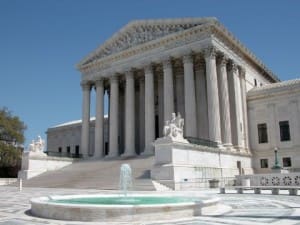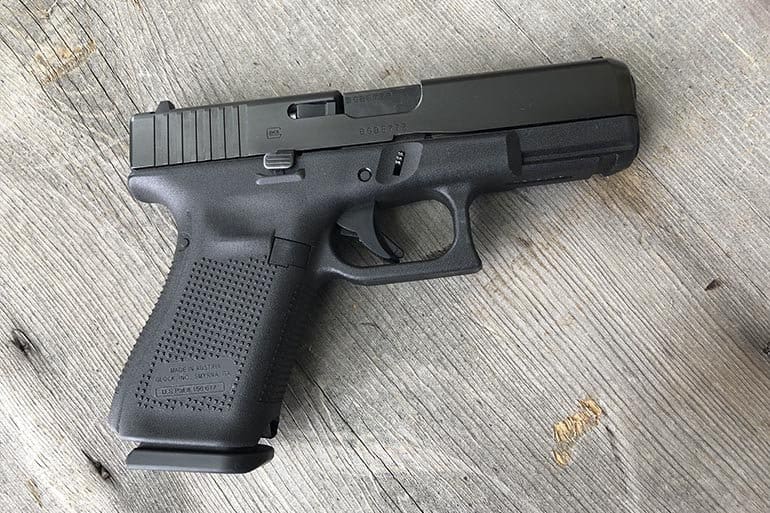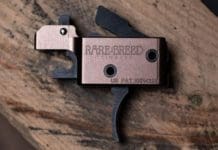There are two amendments to the Constitution that rarely, if ever, appear on the Supreme Court’s docket. One is the Third Amendment, which prohibits the quartering of troops in private homes. Since the end of the Civil War, this one’s been pretty quiet. The Second Amendment—“A well regulated militia being necessary to the security of a free State, the right of the People to keep and bear arms shall not be infringed—is the other constitutional protection we don’t often see in Supreme Court cases. Before 2008’s District of Colombia v. Heller, the last true Second Amendment appeal was heard in 1939, Prior to that, 1886. And now: McDonald v. Chicago. You wait all your life for a Supreme Court gun case, and then BOOM! Two in a row.
On its face, the Heller case is pretty simple. Dick Heller is a Washington, DC police officer. While he could carry a handgun whilst on duty in government buildings, city law prohibited officer Heller from keeping a gun in his home. He filed suit against the city. Other plaintiffs—including a former nurse fed-up with local drug dealers and a gay man who’d used a handgun to defend himself against a potential homophobic assault—joined the action.
Aside from some issues about Washington’s weird non-state status, the Court’s decision was cut and dry, By a five to four majority, the Supremes ruled the firearm ban unconstitutional. Ever the wordsmith, Justice Scalia wrote the majority opinion striking down the prohibition and the city’s requirement that guns stored within its jurisdiction be disassembled or trigger-locked.
The District’s total ban on handgun possession in the home amounts to a prohibition on an entire class of ‘arms’ that Americans overwhelmingly choose for the lawful purpose of self-defense… the requirement that any lawful firearm in the home be disassembled or bound by a trigger lock makes it impossible for citizens to use arms for the core lawful purpose of self-defense and is hence unconstitutional.
On March second, the Court will hear a related case: McDonald v. City of Chicago.
Sparked by a grisly murder in a Chicago courtroom in 1983, Windy City anti-gun advocates mounted a successful campaign to ban handgun possession. The controversial measure mirrored a similar ordinance in Oak Park. When challenged, the Chicago ban passed a city-wide referendum.
The day after the Supreme Court’s Heller decision, the National Rifle Association (NRA) challenged both anti-handgun ordinances. If the Court uses Heller as a basis to overturn the Illinois handgun bans, McDonald v. Chicago will, in effect, prevent any such ban anywhere in the United States.
The NRA will argue that the 14th amendment of the United States constitution—-requiring “equal protection under the law”—compels them to overturn the local handgun bans as infringement on Chicago and Oak Park residents’ Second Amendment right to bear arms. In other words, state and local law can’t trump a Constitutional right. Nor can it ban handguns here and there.
Chicago will argue that the federal government can’t impose Second Amendment rights on state and local governments. And that state and local governments have the right to vary laws in accordance with state and local conditions (i.e. “dangers”).
There’s a bit of obscure legal wrangling accompanying the case, but the gist is clear enough. Should Heller be applied nationally? The answer is bound to be “yes.” But it ain’t over ’til the Supremes sing. Watch this space.





I’m new here … was just wondering if this case was settled yet? ***certainly enjoyed this article!! I look fwd to reading more.
If what the City of Chicago holds true, then any state can ignore any constitutional or right under the Bill of Rights that it so chooses. A state could ban women from voting, gays from marrying, liberals from speaking, conservatives of speaking, bring back slavery or anything else that the state so chooses. That clearly is absurd thinking on the part of Chicago. Then of course, should we expect anything less from these insane liberal beliefs that are spreading in this country.
Comments are closed.